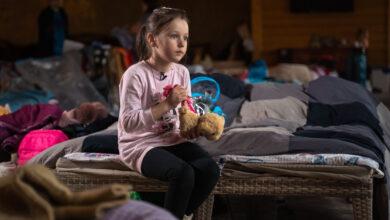Home visits for medical care for young children are being introduced in Ukraine

In the conditions of modern challenges, in particular the protracted war, ensuring the health of children becomes one of the priorities of the state policy of Ukraine. Against this background, the Ministry of Health initiated the program “Care from birth at home”, which provides a new approach to medical care for young children. It is designed to change the health care system for children from birth to four years old, emphasizes home visits by family nurses and providing comprehensive medical and social support to families.
The relevance of the program against the background of the demographic crisis and the war
Over the last decade, a critical decline in the birth rate has been observed in Ukraine, which has decreased by almost 40% in 10 years. This demographic crisis was compounded by war, which made it even more difficult for families to access quality medical services. In many communities, families are left without adequate support and young children without access to timely medical care.
Viktor Lyashko, Minister of Health of Ukraine, notes that the first years of life are decisive for the optimal development of a child. During this period, it is critically important to provide not only medical care, but also support for parents in matters of nutrition, vaccination, disease and injury prevention. That is why it was decided to introduce new standards for the provision of medical services through home visits.
How the program “Care for birth at home” works
The program provides that family nurses will regularly visit families with children under four years of age. According to the new procedure approved by the Ministry of Health, four home visits lasting from 60 to 90 minutes are provided. During these visits, nurses will provide advice on:
- routine vaccination and its importance for the child;
- breastfeeding support and complementary feeding;
- injury prevention at home;
- early detection of child development disorders;
- creating a safe environment for the child.
In addition, families will have access to six more consultations in medical facilities after prior consultation with a doctor. Thus, the program provides a balance between home care and the opportunity to seek additional support in specialized institutions.
A feature of the program is also the provision of psychological support to parents, in particular mothers who may face postpartum depression. Nurses receive special training to identify signs of such conditions and refer parents to specialists who can provide the necessary help.
The role of UNICEF and international partners
UNICEF plays an important role in the implementation of the program. In 2024, with the support of this organization and partners in Ukraine, 12 training and resource centers were created in seven regions, in particular in Volyn, Lviv, Zakarpattia, Chernihiv, Kyiv, Odesa and Dnipropetrovsk. At these centers, health workers are trained in key aspects of child care and family support. It is planned that 10 more such centers will open in 2025.
Training includes issues of vaccination, injury prevention, breastfeeding support, identification of social risks and domestic violence, monitoring of child development. Thanks to these trainings, nurses acquire skills not only in medical care, but also in social support of families in difficult conditions.
Scales of program implementation
By the end of 2024, the program was operating in 15 oblasts of Ukraine, including frontline areas. More than 40,000 children and their parents were helped through home visits by more than 1,100 health workers. In 2025, it is planned to spread the program to all regions of Ukraine.
Funding for the program and support for its implementation are provided by the governments of Spain, Japan, and Germany, as well as banking institutions such as Citi. This emphasizes the international nature of the program and the recognition of its importance for overcoming the demographic crisis in Ukraine.
Value for the future of Ukraine
The Birth Care at Home program is an extremely important step in supporting the health of young children and their families. It helps solve a number of systemic problems, including providing access to medical services in remote areas, supporting parents in difficult life circumstances, and preventing injuries and illnesses. During the war, when many families live in a state of constant stress, home visits become not only medical help, but also moral support for parents.
Thanks to international cooperation, the participation of public organizations and state support, Ukraine is taking a significant step towards creating a health care system that meets modern challenges and provides every child with a chance for a healthy future.





